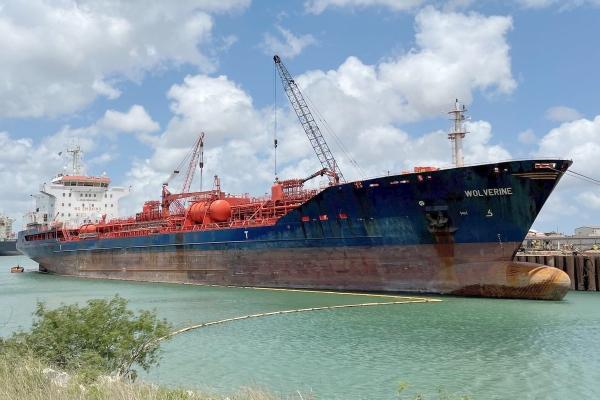Overview
Economic growth and globalisation have led to a worldwide increase of waste transport across borders, by road, rail and boat.
The EU has a system to supervise and control shipments of waste within its borders, and with countries that have signed the Basel Convention. The EU has also introduced rules on the export, import and intra-EU shipment of plastic waste.
The Commission has adopted a proposal for a new Regulation on waste shipments. On 16 November 2023, a political agreement was reached between the European Parliament and the Council on the future new Regulation on waste shipments. Please find the press release here.
A call for tender was published on 11 January 2024 for a framework contract for supporting the Commission in the implementation of the new waste shipment regulation.
Background
Waste contains valuable secondary raw materials. Trading waste can have a positive impact on the economy, but the uncontrolled movement of toxic waste can have disastrous environmental consequences. Toxic waste from Europe has also been exported and dumped in developing countries on several occasions.
EU law on the shipment of waste includes rules for transporting waste across borders. It implements the obligations of the Basel Convention (1989) on the control of transboundary movements of hazardous wastes and their disposal. It also further transposes the provisions of the OECD decision (2001) establishing a control system for waste shipments for recovery within the OECD area.
Under EU waste shipment law, shipments of hazardous waste and waste destined for disposal are prohibited to non-OECD countries outside the EU. For shipments to OECD countries, they are generally subject to the prior notification and consent procedure which requires the prior written consent of all relevant authorities of dispatch, transit and destination. To speed up the procedure, Member States can designate 'pre-consented recovery facilities' (see OECD list) for which more lenient procedures apply and for which they will normally not raise objections as competent authority of destination.
Shipments of “green-listed” non-hazardous wastes within the EU and OECD do not usually require the prior consent of the authorities, but information requirements apply.
Waste shipment controls are carried out by national competent authorities and inspection services, and custom offices.
Objectives
The main aims of EU rules on waste shipments are environmental protection, and to reduce the risks to human health.
Furthermore, they aim to establish greater legal clarity and pursue harmonisation in the area of transboundary shipments of waste.
Law
- Proposal for a new Regulation on waste shipments
- Waste Shipments Regulation
- Waste Shipments Regulation (consolidated version)
- Regulation (EU) 2021/1840, updating Regulation (EC) No 1418/2007 on the export of green-listed waste to non-OECD countries
- Implementing act setting out a preliminary correlation table between customs and waste codes – to help customs officials identify potential waste streams.
- Delegated regulation on plastic waste shipments
The Commission has also published frequently asked questions about the Waste Shipments Regulation.
International Law
- Summary of the Basel Convention on the Control of Transboundary Movements of Hazardous Wastes and Their Disposal
- Basel Convention webpage
- OECD database of Transboundary Movements of Wastes destined for recovery operations which contains inter alia relevant information on pre-consented facilities
Review of the Waste Shipment Regulation
On 17 November 2021, the Commission adopted a proposal for a new Regulation on waste shipments. On 16 November 2023, a political agreement was reached between the European Parliament and the Council on the future new Regulation on waste shipments. Please find the press release here.
The new Regulation aims to ensure that the EU does not export its waste challenges to third countries and support a clean and circular economy. The Regulation will start to apply within 2 years after entry into force and will include:
- new rules for EU waste exports
- modernized rules for the shipment of waste between Member States, including digital procedures
- new measures to better tackle illegal waste shipments
The Council has published the provisional version of the text agreed by co-legislators: Waste shipments: Council and Parliament reach agreement on more efficient and updated rules - Consilium (europa.eu). Please note that this is not yet the official text, which will be published in the Official Journal in 2024, after the completion of the final steps of legislative procedure.
Implementation
Every 3 years, the Commission must report on the implementation of the waste shipment regulation
- 2016 - 2019: Implementation report
- 2013 – 2015: Implementation report and staff working document
- 2010- 2012: Implementation report and staff working document
- 2007-2009: Implementation report and staff working document part 1 and part 2
- 2001-2006: Implementation report and staff working document
- 1997-2000: Implementation report and staff working document
The following information has been provided by Member States on national practices.
Waste shipment correspondents
The Waste Shipment Regulation requires EU Member States and the Commission to nominate correspondents who disseminate advice and information.
Minutes of their meetings are publicly available.
Guidelines
These Correspondents' Guidelines have been agreed by the waste shipment correspondents of EU Member States. They represent their common understanding of how the Waste Shipments Regulation should be interpreted but they are not legally binding.
Read all correspondent guidelines.
Several Member States have published guidance documents for the implementation of the Waste Shipment Regulation:
- AT / Lebensministerium (Ministry of the Environment)
- BE / Flanders
- BE / Wallonie
- BE / Brussels
- DE / BMU (Federal Ministry of the Environment)
- UBA (Federal Environmental Agency)
- DK / Miljøstyrelsen (Danish Environmental Protection Agency)
- EE/ Estonian Ministry of the Environment (keskkonnaamet)
- FI / Finnish Environment Institute
- FR / Ministère de l'Ecologie et du Développement durable
- IE / EPA
- NL / Dutch Ministry of Infrastructure and Environment)
- SE / Naturvardsverket (Swedish Environmental Protection Agency)
The transfrontier shipment of waste is a key focus of IMPEL, the EU network for the Implementation and Enforcement of Environmental Law. See IMPEL’s guidance on waste shipment inspection planning.
Covid-19
The following documents contain key information related to waste shipments and the ongoing COVID-19 pandemic.
Shipments of waste in the EU in the context of the coronavirus crisis - Available in several EU languages
Brexit
Following the UK’s withdrawal from the EU, the Commission has published a Brexit Readiness Notice for Waste Shipments.
- 17 November 2021Commission adopts proposal for a new Regulation on waste shipments
- 20 October 2021Regulation (EU) 2021/1840 is adopted, updating Regulation (EC) No 1418/2007 on the export of green-listed waste to non-OECD countries
- 01 January 2021EU rules on plastic waste shipments enter into force
- 11 March 2020Inception Impact Assessment on the evaluation of the Waste Shipment Regulation published
- 31 January 2020Commission Staff Working Document on the evaluation of Waste Shipment Regulation published
- 14 June 2006Waste Shipments Regulation enters into force
Publications
- Final report - Electronic Data Exchange for Waste Shipment Regulation – reporting package, domain objects and web service definition
- Feasibility Study for the establishment of an Electronic Data Interchange for Waste Shipments, project charter, architecture overview, analysis of stakeholder responses and review of IT systems
- Final report - Experience gained with the helpdesk for questions related to the Waste Shipment regulation
- Annex VII and Articles 18 and 49-50 of the Waste Shipment Regulation, reports on implementation, enforcement and national provisions and on problems, solutions and impact,
- Final report - Current implementation of financial guarantees and equivalent insurance in all Member States, including an impact analysis
- Final report - Possible requirements and criteria for waste shipment inspections, controls and on-the-spot checks
- Awareness-raising events on the application and enforcement of Community legislation on shipments of waste, December 2009 and November 2008 reports
- Final report - Inspection requirements for waste shipments
- Final report - Study on Annex IIIA of the EU Waste Shipment Regulation
- Final report - Transboundary shipments of waste in the EU. Developments 1995-2005 and possible drivers
Related links
Main law: Waste Shipments Regulation
Entry into force: 14 June 2006
Related topics: Circular economy, Plastic waste shipments, Trade and waste shipment, Waste and recycling
Related strategies: Circular economy action plan
Related Commission priorities: European Green Deal
Contact
For questions about EU environmental policy, please contact Europe Direct.



